Publications
Articles, publications, books, tools and multimedia features from the U.S. Institute of Peace provide the latest news, analysis, research findings, practitioner guides and reports, all related to the conflict zones and issues that are at the center of the Institute’s work to prevent and reduce violent conflict.
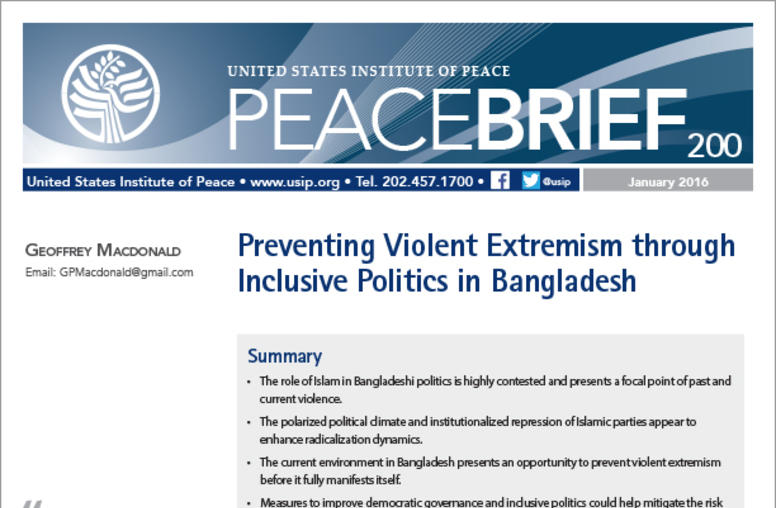
Preventing Violent Extremism through Inclusive Politics in Bangladesh
Bangladesh has a long history of political and electoral violence that has shaped its political culture. Since the early 2000s, it has experienced a renewal of violent extremism and an increasingly polarized political climate. By addressing the relationship between radicalization and institutional dysfunctions, this Peace Brief examines how Bangladesh can help undermine the issues that bolster radicalization efforts by strengthening political and social institutions and making them more inclu...
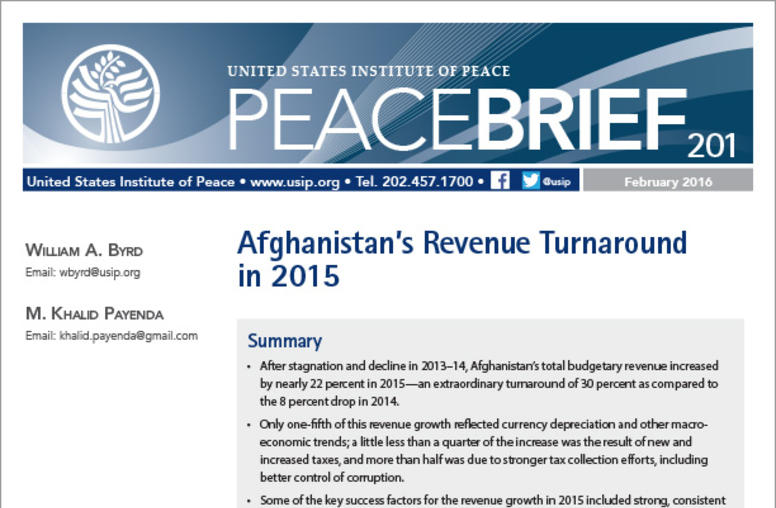
Afghanistan’s Revenue Turnaround in 2015
Afghanistan experienced an impressive revenue turnaround in 2015. This brief examines the sources of the revenue increase and the actions that helped spur it, and discusses lessons learned and future challenges.
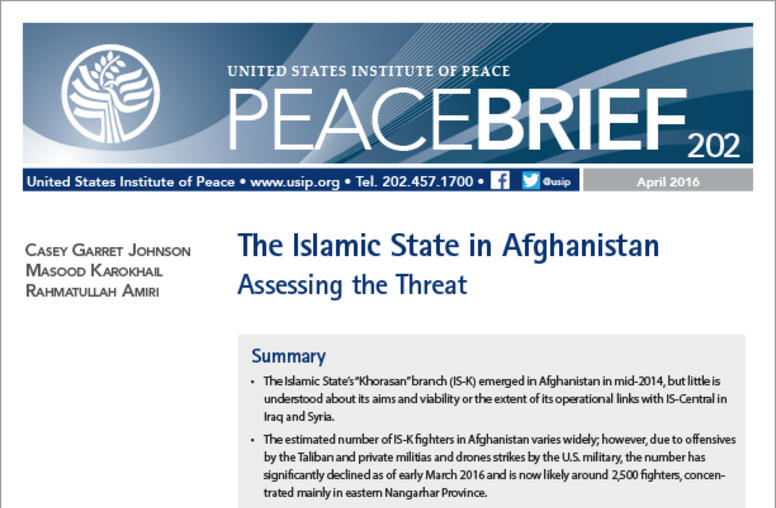
The Islamic State in Afghanistan: Assessing the Threat
While the Islamic State in “Khorasan” (IS-K) gained strength in Afghanistan’s Nangarhar Province starting in mid-2014, Taliban and private militia offensives, as well as U.S. drone strikes, have significantly reduced the total number of fighters as of March 2016. However, several factors could reverse this trend. This brief assesses the viability of IS in Afghanistan and whether it poses a long-term threat in the country.
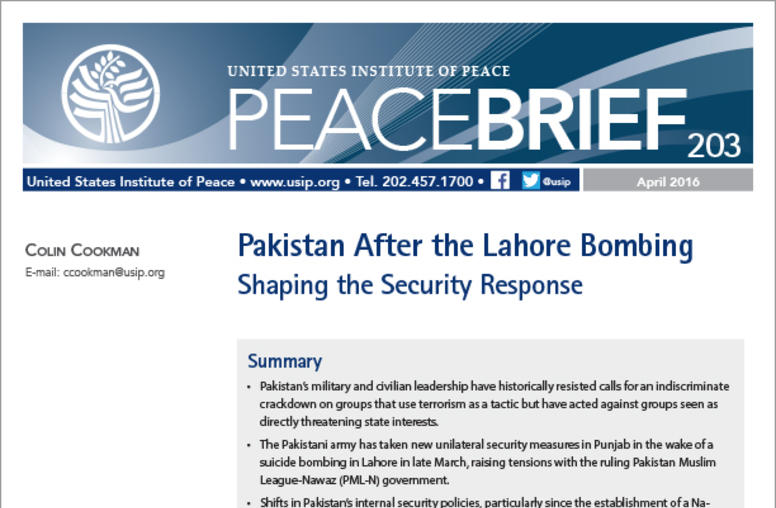
Pakistan After the Lahore Bombing: Shaping the Security Response
Pakistan’s responses to terrorism affect both internal security and the overall balance of power. In light of the attack in Lahore, this brief discusses the implications of the current civil-military relationship and the continuing struggle over who has discretionary power to set and implement relevant policy.
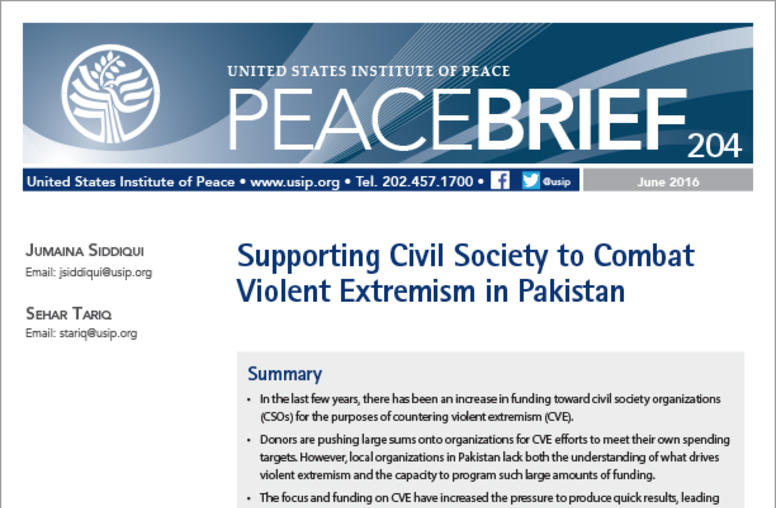
Supporting Civil Society to Combat Violent Extremism in Pakistan
In the past few years, there has been an increase in funding for civil society organizations for the goal of countering violent extremism (CVE). While donors are investing large sums for CVE efforts, in Pakistan, local organizations often lack the technical capacity to understand the nature of violent extremism as well as how to utilize such large amounts of money. This brief discusses the challenges to implementing CVE programs and provides recommendations for how stakeholders can overcome t...
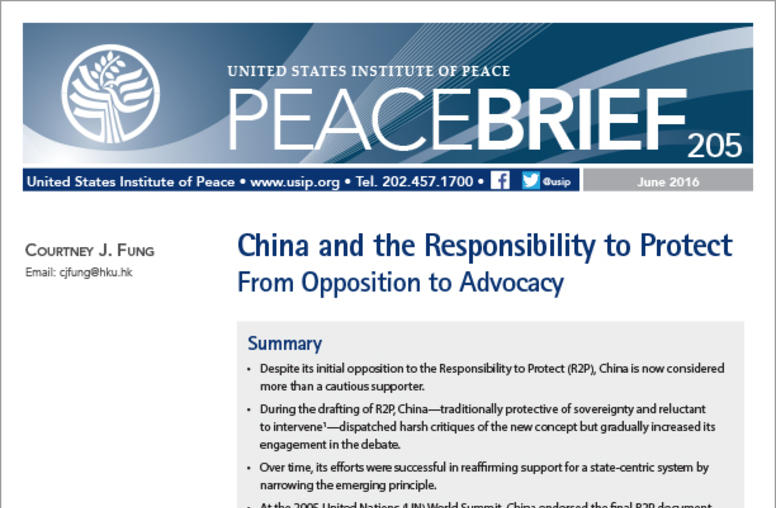
China and the Responsibility to Protect: From Opposition to Advocacy
Initially opposed to the Responsibility to Protect (R2P), China has become a consistent advocate of the principle, endorsing its application in multiple countries while urging a constrained, multilateral approach to the use of force. This brief examines the trajectory and significance of China’s support for R2P. Given the country’s rising role in shaping the rules of global governance, continuing to gain its buy-in will be crucial in achieving the principle’s mandate.
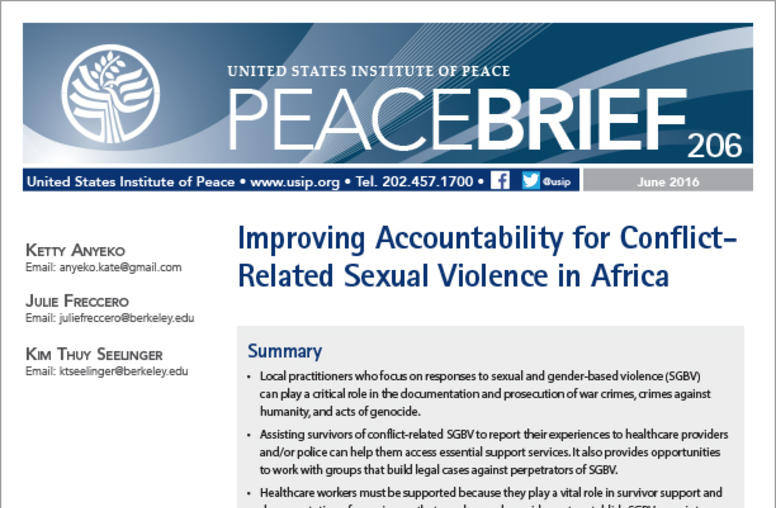
Improving Accountability for Conflict-related Sexual Violence in Africa
Local practitioners who work with survivors of sexual and gender-based violence (SGBV) on a daily basis during peacetime also play a vital role in accountability for conflict-period SGBV. With appropriate training and resources, they can even contribute to the documentation and prosecution of SGBV committed as a war crime, crime against humanity, and act of genocide. This Peace Brief illustrates how new research from the Human Rights Center at the University of California, Berkeley, School of...
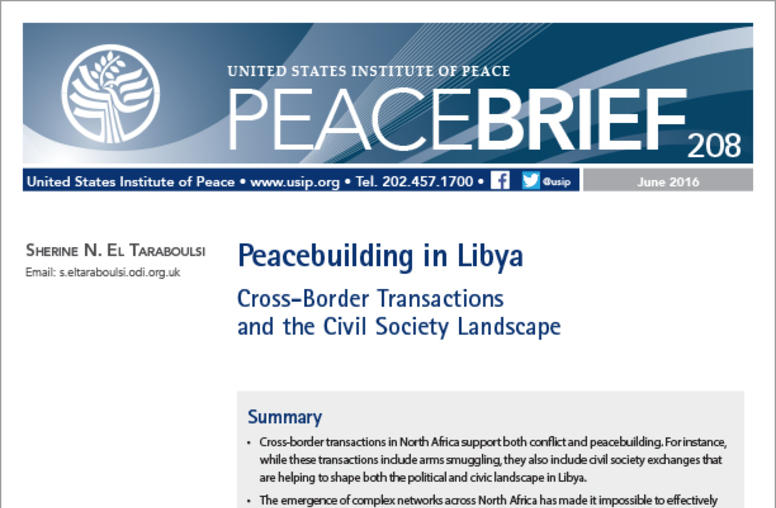
Peacebuilding in Libya: Cross-Border Transactions and The Civil Society Landscape
Cross-border transactions have been shaping the Libyan civil and political landscape for decades. However, desk research and field interviews in Tunisia reveal that interventions for peacebuilding are not fully accounting for these transactions or other regional activities. This brief argues that supporting local and regional actors in working toward a unified vision for Libya requires factoring in cross-border, civil society exchanges and the tensions that affect them.

Balochistan: Caught in the Fragility Trap
Although reports indicate an improvement in its overall security, Balochistan remains the most fragile province in contemporary Pakistan. This brief examines both the efficacy and motivations behind the state’s recent actions to end persistent conflict in the province.
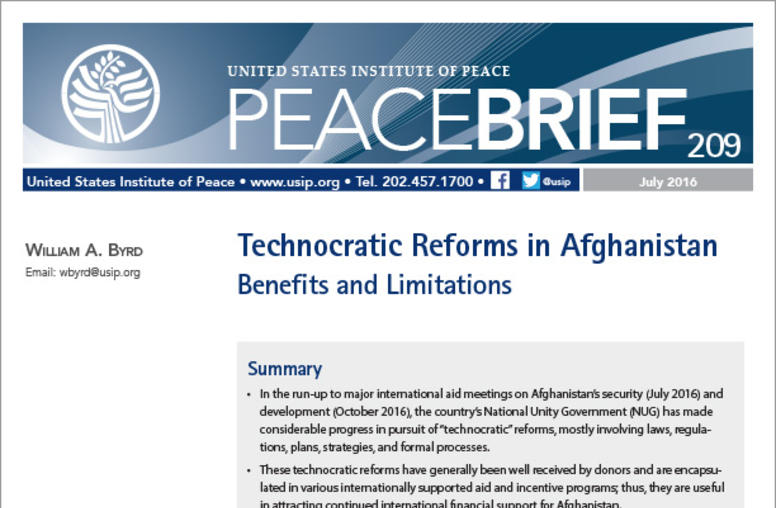
Technocratic Reforms in Afghanistan: Benefits and Limitations
Afghanistan’s “technocratic” reforms have resulted in impressive progress in areas such as public financial management. However, these reforms alone will not solve the country’s pressing security, political, and economic problems. This brief outlines the benefits and limitations of technocratic reforms and emphasizes that government and international attention should not be diverted from concrete, short-term measures to improve government functioning, strengthen security, and stimulate a mode...